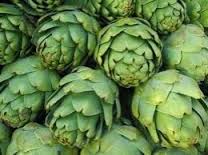
by Dr. Michael Murray | Nov 22, 2016 | Awareness month, Digestion, Most Recent, Natural Facts
How crazy is it that Americans spend over $2 billion a year on laxatives to deal with constipation? Here is something else to ponder, studies designed to determine the percentage of adults suffering from chronic constipation put the number between 24% to almost 50%....

by Dr. Michael Murray | Nov 10, 2015 | Digestion, Natural Facts
Introduction: Resveratrol is a plant compound similar to flavonoids. It is found in the low levels of the skin of red grapes, red wine, cocoa powder, baking chocolate, dark chocolate, peanuts and mulberry skin. Red wine is perhaps the most recognized source of...

by Dr. Michael Murray | Jan 13, 2015 | Digestion
Natural solutions for non-alcoholic fatty liver disease When the liver becomes damaged, a buildup of fatty deposits forms. Although usually associated with excessive intake of alcohol, fatty deposits in the liver have now become associated with a new epidemic...

by Dr. Michael Murray | Jan 13, 2015 | Digestion
Introduction Gastroesophageal reflux disorder (GERD) is a common digestive disorder associated with heartburn and/or upper abdominal pain as well as a feeling of gaseousness, difficulty swallowing, feelings of pressure or heaviness after eating, sensations of bloating...

by Dr. Michael Murray | Jan 12, 2015 | Digestion
The most essential supplements for digestive health in seniors As many people age they start developing poor digestion, particularly heartburn and indigestion. A handful of key supplements can be extremely helpful for enhancing digestion in seniors. Here’s a...

by Dr. Michael Murray | Apr 18, 2012 | Childrens Health, Digestion
The National Institutes of Health reports that constipation in children is a common occurrence. While this condition is typically not life-threatening, it can certainly affect a child’s quality of life. Constipation is characterized by bowel movements that occur less...









